Where Did The Compact Pickups Go?

Bigger isn’t always better, although domestic automakers are pretending not to hear you when it comes to compact pickups. Why?
On December 2011, Ford produced its last Ranger for the US, a truck that had a 28 year heritage as being an affordable, fuel-efficient and market friendly vehicle. True, the Ranger was looking quite prehistoric by the time it was let go, and sales numbers for compact pickups were dwindling from what they used to be, but is that enough of a reason to kill off the vehicle, and send your buyers to another automaker?
When the Ranger was stopped in December 2011, it had already sold 70,000 models that year. Compact pickups are still a significant segment, with Rangers still being sold off Ford lots today.
Toyota and Nissan now stand un-opposed; with Toyota selling more than 12,000 Tacoma’s this past month alone. That shows that there are still buyers in the compact pickup market, and that a proper small pickup is still more important to truck-buyers than something like the Honda Ridgeline (which couldn’t sell more than 1,000 last month.)
‘ONE FORD’ FAILS RANGER
Ford does have a new Ranger though. In international markets the Ford Ranger continues to thrive. In fact, in 180 markets, the Ranger has the small size and efficiency that made it so recognizable and the off-roading chops to compete with the likes of the Toyota Tacoma. The interior and exterior design of that new vehicle are also a generation apart from the old truck, and features Ford’s latest safety and user friendly comforts.
If Ford’s ‘One Ford’ marketing strategy of selling models globally is to be believed, there should be no reason not to see a Ranger make its way to North America. Under the One Ford philosophy, an international Ford is as good as a domestic one, and vice-versa. It’s that idea that led to the impressive Focus ST, and the stunning design of the new Fusion. By using the research and experience of being a global brand, Ford has made some pretty inspired vehicles. Under that philosophy there’s no apparent reason why that Ranger wouldn’t exist here.
However, Ford says that the F-150 half-ton pickup covers the entire range of truck buyer’s needs, even those who considered the Ranger. They insist that it’s as cheap as a Ranger, and as fuel efficient. The last Ford Ranger came in at around $18,160 and earned 22/27 mpg city/highway and 24 mpg combined. The new Ford F-150, however, costs many thousands more at $23,500 and at its best gets 17/23 mpg city/high and 19 mpg combined. There’s a pretty significant difference in price and fuel efficiency. The international Ranger earns about 28.3 mpg combined on the UK efficiency cycle, and is even available with a diesel engine that gets 32.8 mpg. The only way the new Ranger doesn’t stack up favourably is when it comes to price, which when converted directly from the UK pricetag, would come to around the price of a base F-150.
GM BRINGS INTERNATIONAL FLAVOR TO US
Ford’s strategy in regards to its small pickup isn’t shared by its competitors. Rival American automaker General Motors has an international version of the Colorado pickup, designed with some input from the Thai and Brazilian market.
“It was very much a multicultural team with people from a number of different GM regions relocating for the project including GM Europe, SAAB, GM North America, and GM Holden,” says Kirsty Lindsay, a Design Manager of the Holden Colorado.
GM has stated that the international Holden Colorado and Chevrolet Colorado, will be the base of the North American model. This method of releasing the vehicle in international markets first was used in the global release of the Cruze, Spark and Sonic. It all sounds similar to Fords ‘One-Ford’ strategy, but in regards to the compact pickup, GM is actually following through.
“Obviously, we think there is a good market for a midsize truck here in the U.S,” said Tom Wilkinson, from Chevrolet’s Communications team. “There are customers who don’t need the full capability of a full-size truck, and are attracted to a truck that is a little smaller and has better fuel economy.”
Wilkinson added that he “can’t speak for our competitors, but we like our strategy.”
The team at Holden seems to agree that compact pickups work and are an important product to have.
“The light commercial vehicle market is booming at an amazing rate and we expect this to continue well into the foreseeable future,” says John Elsworth, executive director of sales and marketing at Holden. “What counts with these two buyer groups is toughness, reliability and great looks.” That certainly applies across the world in the US, meaning that the Colorado should be the same attractive option to Americans as it is everywhere else.
WHATS SO BIG ABOUT COMPACT PICKUPS?
Compact pickups are sometimes looked down upon by the rest of truck buyers. If someone wants a truck, why not get a ‘real’ one, like the F-150, Silverado or Ram? They have all the capability a truck owner would want thanks to a bigger bed. They have bigger, more powerful engines that allow for greater towing and payload, and are overall more spacious.
Then why are compact pickups so popular? Toyota has sold more of its Tacoma compact pickup in 2012, rather than its Tundra half-ton which competes with the big-dogs named F-150, Ram and Silverado. Nissan too, enjoys more sales for its Frontier compact pickup over its Titan, likely for the same main reasons as the Tacoma.
“The Tacoma is very successful for a number of reasons,” says Sam Butto, from Toyota’s truck division. “Toyota has a long and rich compact pickup truck heritage that dates back nearly 50 years and has a reputation for its quality, utility and durability that has earned a large amount of owner loyalty.” Butto’s right, a Toyota often sits atop Consumer Reports reliability report cards every year, and rated much higher than the American automakers.
“For many years now the Tacoma has been the number one seller in the U.S. in the compact pickup segment and currently holds a market share of over 40 percent,” says Butto “Reasons for this, in addition to its reputation for quality and durability, is because for the past several years the size of compact pickups, including Tacoma, have grown, thus increasing their capability.”
Butto then outlines the main reasons why compact pickups are popular in the first place.
“The Tacoma is less expensive than full-size trucks yet delivers the power and utility to satisfy the needs of many truck owners. Additionally, Tacoma delivers better fuel economy than most full-size trucks.”
CHICKEN TAX SCARING RANGERS AWAY
So why exactly is Ford not bringing a small pickup here, while GM is? Also, why do Toyota and Nissan continue to sell small pickups here, even though the market is so small?
GM is planning on making the new Colorado here in the states, while Ford would have to import them, meaning it would cost quite a bit. Toyota and Nissan both make their US-spec pickups in the states too, which helps reduce the costs. The Chicken Tax is another significant reason it would be expensive to bring the International Ranger over to the US.
The Chicken Tax is a 25% tariff that was put in place in 1963 on imported light trucks, as a response to France and West Germany taxing American chickens and other products. Today, the chicken tax lives on to protect U.S. domestic automakers from foreign truck production. When it was first introduced it cut-down competition in the US, making more American-made vehicles available to buyers. Now, with the auto-industry being a global trade, it’s hurting domestic automakers too.
The Chicken Tax is already causing headaches for Ford on its Transit Connect cargo van. Made in Turkey, the Ford Transit Connect is shipped to the US as a passenger vehicle to avoid the chicken tax. The car then gets unassembled, leaving its seats and windows to be recycled, as the new cargo spec version of the van is sold to American customers. The Ranger, however, doesn’t have any way to disguise itself as a passenger vehicle, so all pickups are taxed at the port.
CATCHING UP TO BIG BROTHER
What if Ford could make the Ranger in the US? The cost to Ford of developing a plant to cater to the Ranger’s platform could be pretty significant in these tight times for automakers. Speaking of the new Ranger’s platform, it’s quite a bit bigger than the old Ranger. Comparisons have been made between the four-door Ranger to the four-door F-150 with a regular 5.5-foot box, and they conclude that the Ranger is still smaller in every way. However, the margin is tight, with the two vehicles being quite close in terms of length (231.9 for the F-150 to 210.6 inches for the Ranger) wheelbase (144.5 inches/126.8 inches), width (67 inches/61 inches), and height (76.2 inches/71.7 inches.) So, while the Ranger is still smaller than the F-150, it’s not nearly as big of a difference as it used to be. That means that buyers might want to opt for the F-150, which is just 10% larger than the Ranger. So even if Ford made the Ranger here, and priced it below the F-150, it might very well eat into sales of the bigger pickup. Any move that hurts the F-150 hurts Ford, so the international Ranger definitely won’t ever see our shores.
So, will the current market segment leader turn around and stop making the Tacoma, like Ford did with the Ranger? It doesn’t look like it. A new model of the Tacoma is expected to come out in 2014 and feature new engine technology and an updated style. Nissan will also be debuting a new version of the Frontier in the next year or so. That means the compact pickup battle will be on in 2014, but without Ford taking on Chevy, Nissan and Toyota, it just won’t be the same.

Sami has an unquenchable thirst for car knowledge and has been at AutoGuide for the past six years. He has a degree in journalism and media studies from the University of Guelph-Humber in Toronto and has won multiple journalism awards from the Automotive Journalist Association of Canada. Sami is also on the jury for the World Car Awards.
More by Sami Haj-Assaad



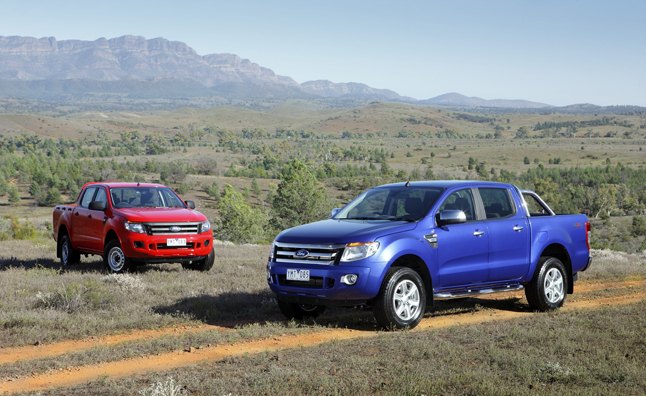


















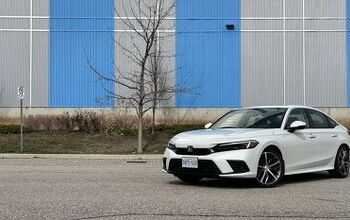





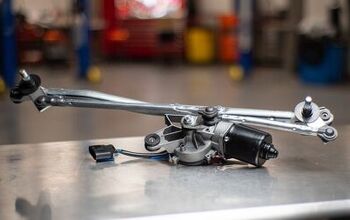
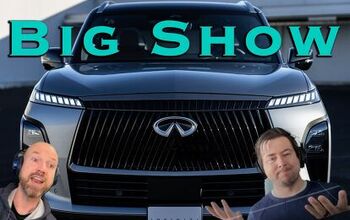

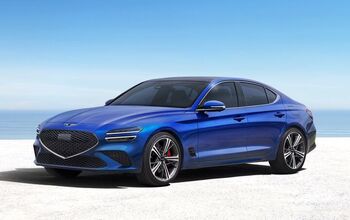


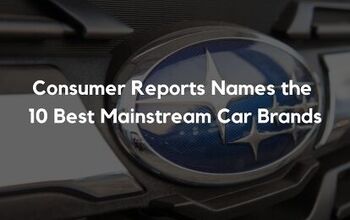
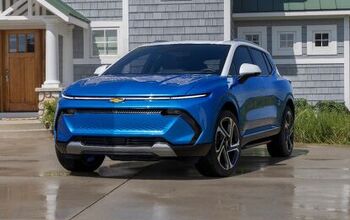
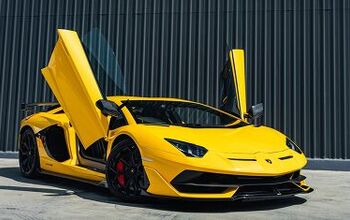
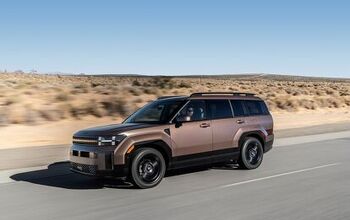
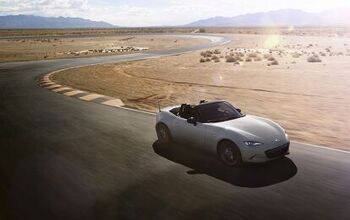

Comments
Join the conversation
I own a 2000 Ranger with 240,000 miles.Replaced transmission and will rebuild motor when needed.Will drive it till I total it.Idiots are well and alive in Detroit!
I got back to the states and was surprised there were no longer any new small pickups. I'll keep driving this Prius, with a set of bumper nuts, until they make one again.